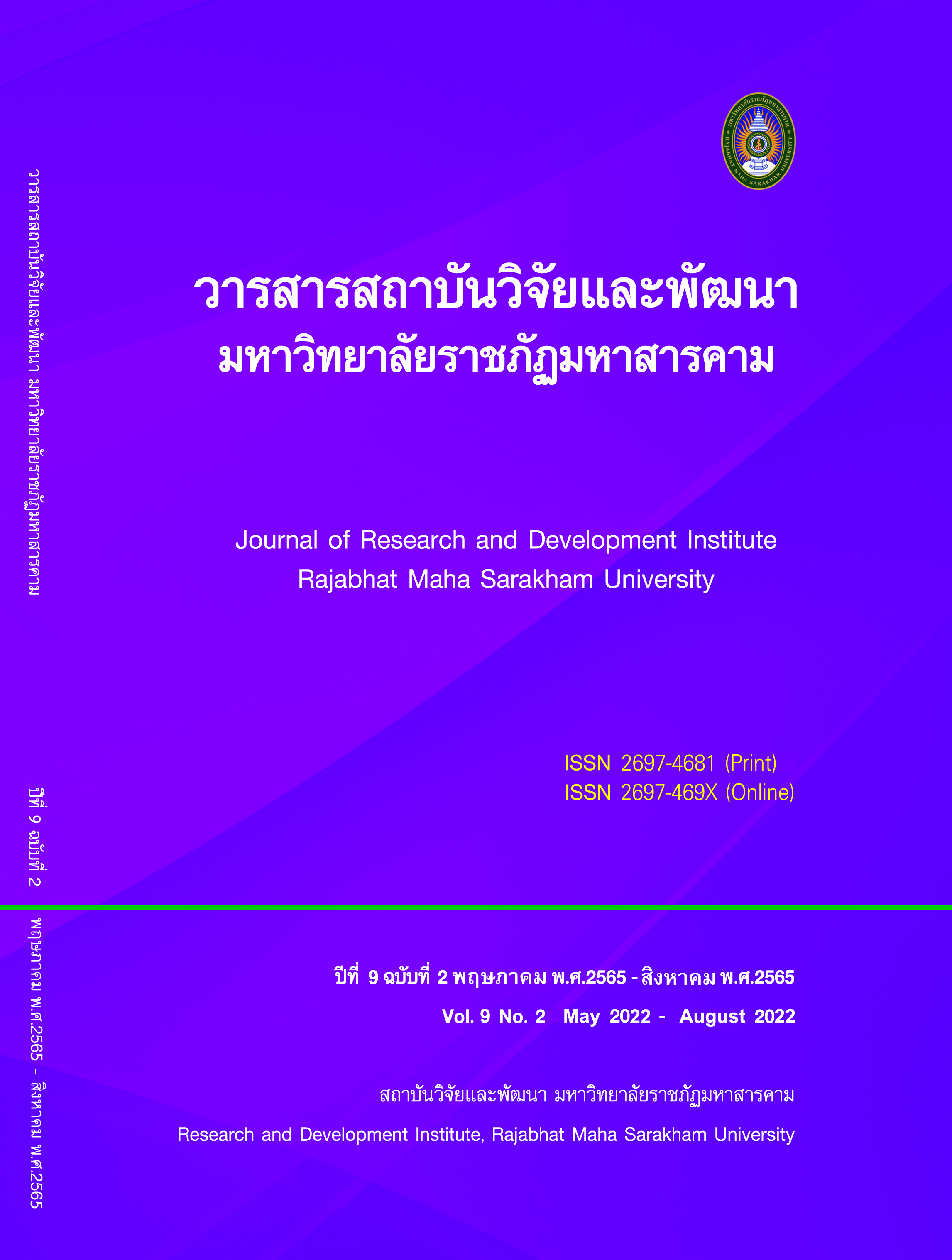The key success factors of solid waste management in Non Wai subdistrict, Nong Wua So district, Udon thani province.
Keywords:
Participation, Leadership, Policy, Success FactorsAbstract
The objectives of this research were to (1) study the operational situation of community solid waste management, Non Wai Subdistrict Municipality, Nong Wua So District, Udon Thani Province; and (2) study the success factors of community solid waste management, Non Wai Subdistrict Municipality, Nong Wua So District, Udon Thani Province. In-depth interviews were used, and lesson distilled stage was used with a semi-structured questionnaire (semi-structural interview form) validated by advisors and experts. This research has selected key informants from a group of government agencies, namely, the local administration, head of government, 10 local employees classified according to their relevance. Experience and position type Group of people working in the public sector, community leaders, consisting of 10 people, classified according to their relevance, experience and type of position and were selected through purposive sampling. The findings of the study are as follow:
- The situation of community solid waste management Ban Thung Huay Sai, Village No. 7, had a problem with solid waste management with no solid waste restriction center according to sanitation principles in the area. The duty to limit waste is the municipality and tourism is promoted, causing economic expansion. The community is more urbanisned. There are many temples in the area that are a source of tourist attractions. As a result, the amount of garbage in the village increased, resulting in pollution problems. Ban Thung Huay Sai, Village No. 7, had an average amount of 57.50 tons of solid waste per month, with 80 households with a population of 332.
- The factors of success in community solid waste management in Non Wai Subdistrict Municipality under the zero waste community project, Ban Thung Huay Sai Village No. 7, the first place in terms of participation: (1) co-thinking, joint decision-making; (2) co-operation, joint planning; (3) co-operation; (4) follow up and evaluate; and (5) benefit sharing. The second place in leadership with strong administrators and community leaders, and the third place is policy, with vision and importance in implementing community solid waste management policies.
References
Department of Public Health and Environment Non Wai Subdistrict Municipality Nong Wua So District Udon Thani Province. (2020). Public Relations for Zero Waste Community Project. [Online]. https://www.facebook.com/profile.php?id=100007672327836 [5 July 2064]
Harimthephathip, M. (2016). Factors of success. [Online]. http://m.mfa.go.th/business/th/articles/88/68972-4.html [6 July 2020]
Meesri, K. (2016). Factors of Success in Solid Waste Management by the Community : A Case Study of Ketphono Community 3, 4, 5, Phrakhon District, Bangkok. Bangkok : Thammasat University.
Pollution Control Department Ministry of Natural Resources and Environment. (2016). National Solid Waste Management Master Plan. 2012-2021. Bangkok: Bureau of Waste and Hazardous Substances Management.
Udon Thani Provincial Public Relations Office. (2020). Zero waste. [Online]. https://www.facebook.com/profile.php?id=100008999622737 [5 July 2020]
Unroj, P. (2020). Best practices for participative waste management of Wiang Thoeng Sub-district Municipality Wiang Thoeng District Chiang Rai Province - Turning Crisis into Opportunity. Environmental Journal, 25(1), 1-9.
Downloads
Published
How to Cite
Issue
Section
License
Copyright (c) 2022 Journal of Research and Development Institute Rajabhat Maha Sarakham University

This work is licensed under a Creative Commons Attribution-NonCommercial-NoDerivatives 4.0 International License.
Articles that are published are copyrighted by the authors of the articles







